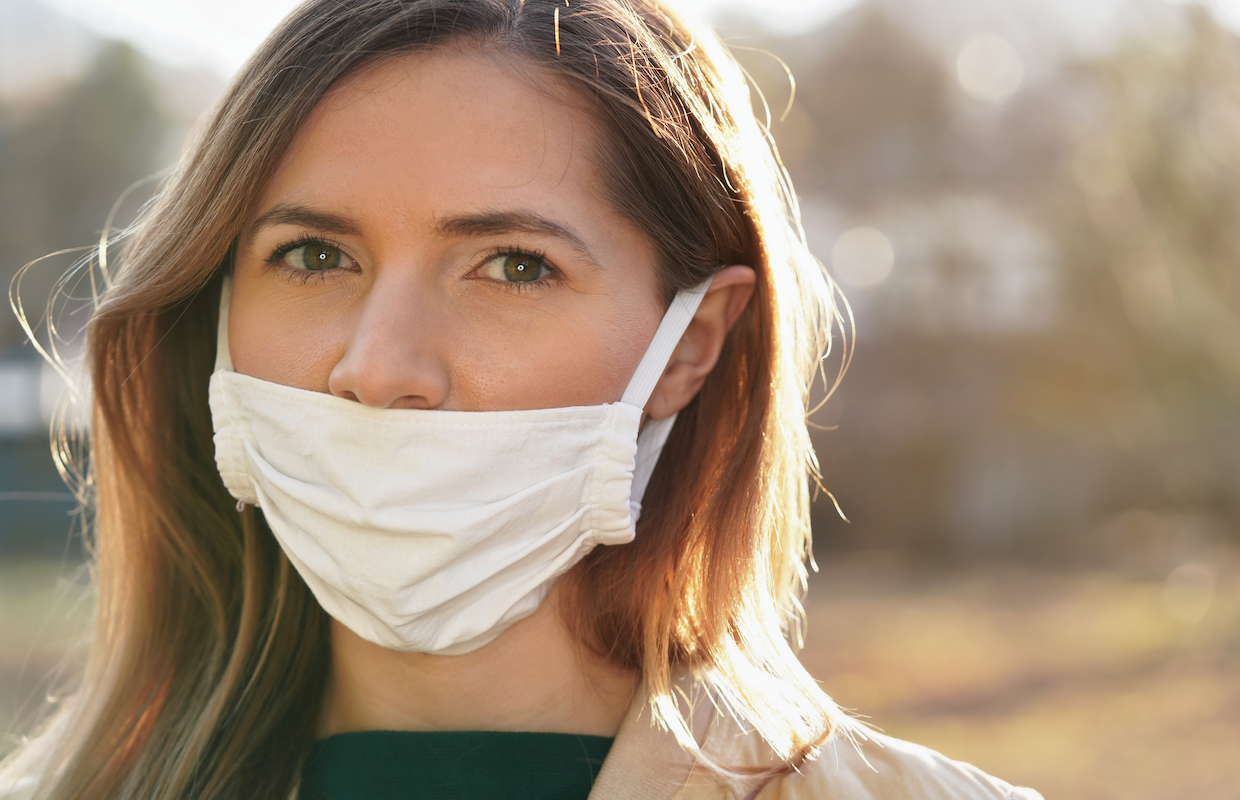When asked if a mask is effective when you wear it just below your nose, the doctors said: “No. A mask is not effective if it is worn below the nose, because respiratory droplets come from sneezing as well as coughing.” Wearing a mask or face covering has been proven by medical and public health experts as an effective way to slow the spread of COVID-19. Expert projections have even been updated to show that, if everyone were to wear a mask, tens of thousands of lives would be saved. But unless everyone is wearing a mask the correct way—over their mouth and nose—it’s less worth the effort. “Nasal secretions can contain the coronavirus in an infected person, and covering the nose can help prevent transmission since the virus can infect an individual by entry through the nasal passages,” the doctors continued. “This means that if you sneeze into the open air, you can put another person at risk of being exposed to your germs. Moreover, wearing a mask over your nose not only helps others from you potentially transmitting the coronavirus, but it decreases the risk of you—the mask-wearer—from contracting it as well.” RELATED: For more up-to-date information, sign up for our daily newsletter. A June study from researchers at the University of North Carolina at Chapel Hill further explains why it’s pivotal that your face mask covers your nose. The findings, published in the journal Cell, suggest that the virus tends to become firmly established first in the nasal cavity. Study co-senior author Richard Boucher, director of the Marsico Lung Institute at the UNC School of Medicine, MD, said in a statement that “if the nose is the dominant initial site from which lung infections are seeded, then the widespread use of masks to protect the nasal passages” is all the more important. And for more mask facts to get to know, check out 10 Myths About Face Masks You Need to Know.
